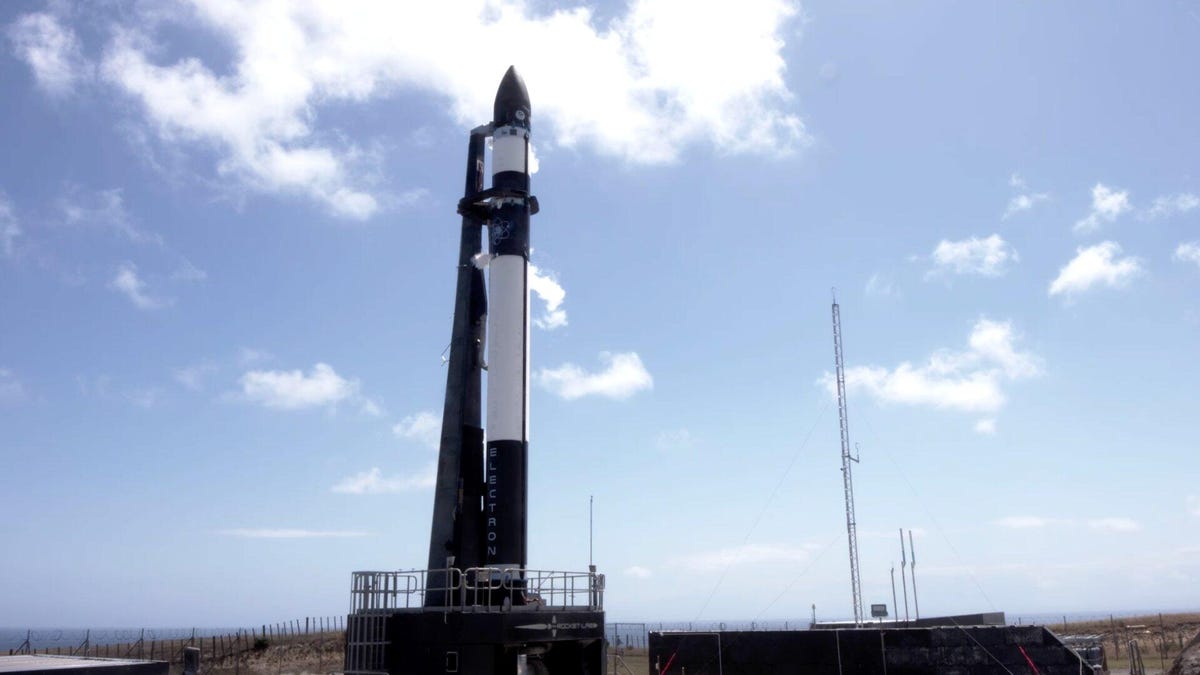Rocket Lab will recover the booster from its next launch using a helicopter
The small satellite launch company is following in the footsteps of SpaceX when it comes to reusing its hardware.

A Rocket Lab Electron rocket awaits liftoff in New Zealand.
Another commercial space company is taking big steps toward becoming a rocket recycler. On Tuesday, Rocket Lab announced it plans to use a chopper to retrieve one of its Electron rockets from choppy ocean waters after splashdown as part of its next mission.
The US and New Zealand-based launch provider has previously plucked its boosters from the ocean, but this will be the first time a helicopter will be part of the operation. Adding the aircraft moves the company closer to attempting a more ambitious mid-air recovery.
"We're gearing up for the next stage -- preparing to use a helicopter to catch a rocket as it descends to Earth from space," said Rocket Lab founder and CEO Peter Beck, in a statement.
A helicopter will be stationed offshore at Rocket Lab's New Zealand launch facility, where it observe the booster's descent while testing communications and tracking to inform future aerial recovery attempts.
The mission, nicknamed Love at First Insight, is scheduled to blast off during a two-week launch window that begins on Nov. 11. An Electron rocket will boost two Earth-watching satellites for global monitoring company BlackSky before returning to splash down in the Pacific Ocean.
The whole thing will be livestreamed and we will embed the feed here when it becomes available.

